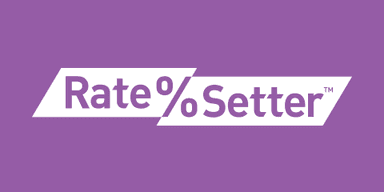Compare car finance loans
Compare loans and see the lowest rate available to you

Boost your chances of approval
No impact to your credit rating
Get an instant response

Financial Conduct Authority
Authorised & Regulated
We compare hundreds of loans from leading lenders







Guide to car loans
What is a car finance loan?
The clue is in the name – a car finance loan can help you secure the money for a new car. Buying a new car often involves haggling for a great deal, so it makes sense that you should find the best loan option as well. Of course there are many different ways to find the money in order to buy a car, with car finance loans being just one of them. Let’s look into the various options available to you.
What types of car finance loans are available?
With a hire purchase plan you are required to pay a deposit upfront and commit to a set number of monthly payments.
While this type of loan means you get your car from the start of the agreement, it can be repossessed if you fall behind on your payments. You are essentially hiring the car until all the payments are made, at which point you are given an ‘option to purchase’, which is a final payment to make the car officially yours. Another snag with this option is that you will also be unable to sell the car while you are still making the payments, as technically you don’t fully own it yet.
Personal loans can also be used to help finance a car, and many people find one of these before they secure the finances needed before purchasing the car. Obviously this option means that you will own the car outright and will be able to sell it whenever you please, however you will still be making regular payments on the loan you took out.
Make sure you compare the car loans available to you to make sure you find the option that works well for you.
Pros and cons of car loans
A car finance loan is a great way to spread the cost of a large purchase, and will enable you to get the keys to a new car almost immediately, rather than having to save up
Some loans will also be flexible in term of repayment period – some will require you to pay all the money back in a year, other could give you up to five years to make the last payment. However, be aware that the longer it takes you to pay the loan back the more interest you will be paying.
However the interest on the money borrowed can mean that you end up paying more than the car’s original price tag, meaning that using savings to buy a new car can sometimes be a better option.
It’s important to remember that with a car finance loan, as we have said above, you don’t technically own the car until the last payment is made. You should also be aware that having poor credit can impact the amount of money you are able to borrow.
Alternatives to a car finance loan
While car finance loans are attractive because they directly relate to vehicles, they are not the only option when it comes to borrowing money for a new car.
If you’re buying a relatively cheap car then a credit card might be a viable option. Many purchase cards offer a 0% introductory period which can help you with budgeted-for purchases. However you should only choose this option if you are confident that you can pay the money back before the 0% period ends.
If you are buying the car with cash (which is likely to happen if it is a private sale) a money transfer card is also a good option to consider. Money transfer cards can be particularly useful when buying something like a car as they allow you to transfer cash from the money transfer card to your current account. Money transfer cards often have a 0% introductory interest rate, essentially acting as a small loan which you can use to raise the cash for a car. However, you must make sure you can pay back the money on the card before the introductory period ends, as the interest will often jump to a much higher rate after this period.
Things to remember when looking for cheap car loans
Whenever you’re making a large purchase, the first thing that should always pop into your head is the Section 75 consumer protection benefit. What is Section 75? This consumer legislation gives you protection on any purchases between £100 and £30,000 should anything go wrong. All you have to do is contact your credit card company and they will look into whether or not you can claim the money back. We strongly advise using a credit card to at least buy part of the car (if you are not paying in cash) so you can be protected should anything with the sale or the car itself goes wrong.
While a car might be essential to your life, we would recommend making sure you don’t use all of your savings when putting down a deposit – make sure you have some funds left for an emergency.
A car is a large purchase and an important one, so you want to make sure you don’t spend years paying it off at a huge interest rate. Use our price comparison tool to find the best option available to you before committing to any loan plan. If you have poor credit history you can also look for bad credit car loans.
Also, remember that the size of the loan you are likely to be offered will be affected by your credit rating. If you have bad credit history then lenders might not offer you a large loan, meaning you might have to find some of the money to buy your car elsewhere.
Is a car finance loan right for me?
You need to consider how much money you want to spend on a car, how urgently you need it and how much of your savings you are willing to part with in order to fund it.
As we have discussed, car finance loans are not the only way to secure money for a car, so you need to assess all your options and make sure you chose the one which is best for you and your financial situation.
Perhaps a credit card might be a better option to help finance your car? Or, if you need to buy a car quickly, a personal loan?
You must also be aware that when taking out any loan you will be paying interest on what you owe, meaning that the final price you pay for the car will be more than its listed sale price.
Missing payments will have severe consequences and may make obtaining credit more difficult in the future.
If you decide to take out a homeowner loan, you agree that your personal details will be sent to a credit broker who will contact you by telephone and/or email to find out more about your requirements. This allows the broker to ensure you are introduced to loan products which meet your individual requirements and financial circumstances.
Should you choose to make an application, the broker will advise you of any arrangement fee you may be charged when you take out a loan.